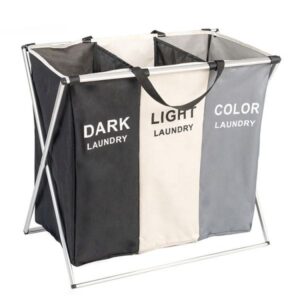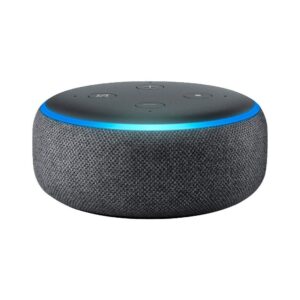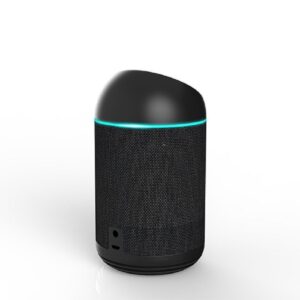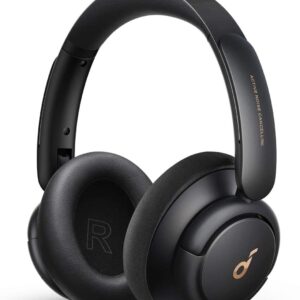Saving money is just one aspect of being resourceful; you also need to know how to spend it. That also implies that sometimes it makes sense to spend more now for a better, more enduring experience, while other times it may be cheaper now but end up costing you more in the long run. Let’s examine when it makes sense to spend now in order to save later.
How Saving Money Actually Works
Budgeting, like productivity, is about spending intelligently on the appropriate things so you have the money for the things that are essential to you. It’s not just about being frugal and saving a ton of money. Because you’ve chosen wisely now, you should be able to save with ease for your objectives or for emergencies. That implies that you must take a long view.
It takes more thought than you might imagine to do this. As long as “saving money” remains at the forefront of your thoughts, it’s simple to get sucked into simply purchasing the least expensive version of whatever you require. Unfortunately, shopping on a budget can result in future costs that are higher—whether they be maintenance and repair expenses or replacement prices if you have to continually replace the same cheap item. There are instances when it makes sense to spend more money so you don’t incur those fees if you really want to save money and invest in quality.
Urban Edge prioritizes quality in everything we offer, carefully choosing genuine suppliers to ensure that our products meet or exceed customer expectations. Because trust is so important when it comes to making an online purchase, we take a number of steps to ensure that our customers can trust our products. In order for potential consumers to see for themselves the experiences of others, we also encourage our customers to leave sincere reviews of our products on our website, google page, and other review platforms.
Sometimes it makes sense to spend more today in order to save more tomorrow
Whether you’re choosing between buying a pair of jeans or a house, there are two important variables you must take into account: price and quality. It’s simple to scrimp where you think it’s an inconsequential purchase—like clothing or cleaning supplies—and choose the cheapest option, or to blow your budget on quality because you feel you should or because it’s a special purchase—like a car or a house—because you think you should.
In this article, Peter Anderson shows how most of us lie somewhere between the two:
When it comes to items I don’t care about or that are of comparable quality regardless of price, I frequently choose the less expensive option. I usually opt to purchase the higher-quality item when there is a large quality difference. After all, something isn’t inherently cheap just because it’s inexpensive. You’ll have to pay more money to replace the less expensive item if it breaks down sooner than expected.
For instance, you might believe that consumables, such as cleaning supplies or toiletries, are okay to spend less on, but if you end up using more cleaning products than necessary to achieve the same results as more expensive products (or ones you could make yourself if you spent a little more money), you’re actually wasting money. Some of the more noteworthy instances of this phenomenon are as follows:
Luggage, purses, wallets: You rely on and trust your wallets, bags, and other daily carry goods every day. They are, in a sense, commodities; you can always find another wallet or bag, but purchasing a high-quality item means more than just getting a solid, dependable accessory. Additionally, it implies that over time, replacing them when they wear out will cost less. Many individuals pointed out that while inexpensive may be alluring, investing more to obtain something of high make and craftsmanship means you’ll have a wallet or bag that’ll last for years when we looked at the five best wallets and the five best laptop bags.
In conclusion, while it is more cost-effective to purchase a $200 bag that will last 15 years as opposed to a $75 bag that will last two, it is still preferable to have something that is well-made, sturdy, and able to withstand the demands of daily use without breaking. Like the difference between a plastic wallet from the department store and something hand-crafted to last a lifetime, there is a significant difference between well-made baggage and inexpensive luggage.
Appliances and products that save energy: When you spend a little extra on kitchen and home appliances, you get a durable, energy-efficient product that could end up saving you money over time. In essence, you need to conduct some math before selecting how much money to spend. Consider your spending limit, the length of time you intend to own the appliance, and its operating costs after that. A more expensive but more energy-efficient model makes sense to buy if you intend to keep the item long enough to benefit from long-term savings. It still makes sense because you’ll be able to receive more of your money back even if you intend to sell the item.
Furniture: We’ve talked about how cheap furniture is typically not worth buying, mostly because it will either fall apart or cost you extra money to fix or shore up. In the end, you should buy based on how long you anticipate to live in a particular place and how frequently you use a piece. If you spend a few hours on a cheap couch every night, it will make you sad. Likewise, saving money on a bed and mattress will always make you unhappy.
However, less-durable, easily replaceable furniture may be preferable to big, long-lasting items if you move frequently. Overall, however, it makes more sense to invest in durable, classic items that you can move around with rather than having to replace them each time you move or your desk breaks.
By no means does this list contain everything. Depending on your way of life, this list might grow. For instance, if you enjoy constructing your own computers, you might think about investing in premium parts and future-proofing your setup so you don’t have to upgrade or create a new one as frequently. Instead of sticking to outdated products for the long term, buying more regularly will get you newer, more energy-efficient, and actively maintained devices if you’d rather be on the cutting edge of technology and you have the financial means to support it. The ideal balance between price and durability (or quality) must be found.
Avoid the commodity culture
In our modern society, almost everything may be bought, disposed of, and bought again at a reasonable price. It’s simple to think of everything as a commodity in that way since, as long as we have the money to buy it, anything we might possibly need or want is easily accessible. But avoiding that way of thinking is essential to practicing modest living. Even if you have a working option, it doesn’t necessarily make sense to hurry out and get a new bag for your upcoming trip. However, if you do decide to get a new one, a sensible person would make sure they purchased one that could endure for the upcoming trip as well as the following twelve.
It’s not too tough to change your thinking, but it does take some research. When buying, you’ll need to do your research, which entails more than just reading reviews and understanding which kinds of evaluations to believe. It also entails realizing when you can acquire quality for less money, which allows you to invest in goods with long lifespans, low energy consumption, and low total cost of ownership rather than a band’s or label’s name.
Invest in businesses that offer high-quality goods and encourage this way of thinking. It shouldn’t be challenging because many businesses are proud of their dedication to quality, even if it means charging somewhat more. Companies that prioritize quality are typically proud to declare this, and their clients are typically proud to support it. We are dedicated to gaining and maintaining the trust of our consumers by placing a high priority on quality, transparency, and security




